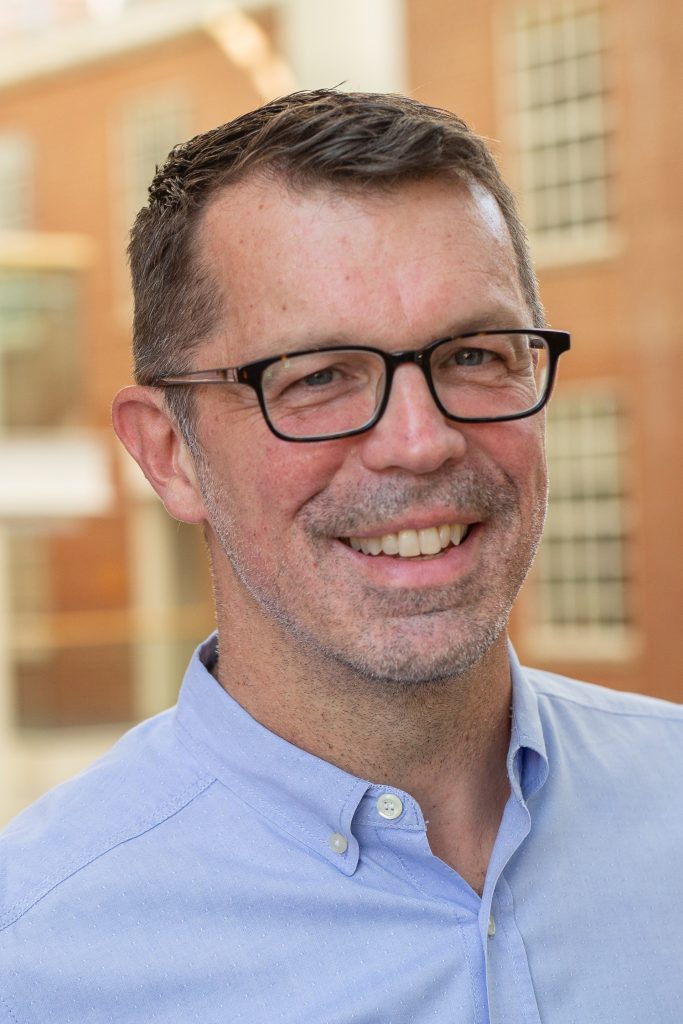UNC Lineberger Comprehensive Cancer Center has partnered with 71 other National Cancer Institute (NCI)-designated cancer centers to issue a joint statement urging the nation’s physicians, parents and young adults to get the human papillomavirus (HPV) vaccination back on track.
Dramatic drops in annual well visits and immunizations during the COVID-19 pandemic have caused a significant vaccination gap and lag in vital preventive services among U.S. children and adolescents—especially for the HPV vaccine.
HPV in the United States

Nearly 80 million Americans – 1 out of every 4 people – are infected with HPV, a virus that causes several types of cancers. Of those millions, more than 31,000 will be diagnosed with an HPV-related cancer this year. Despite those staggering figures and the availability of a vaccine to prevent HPV infections, HPV vaccination rates remain significantly lower than other recommended adolescent vaccines in the U.S. Even before the COVID-19 pandemic, HPV vaccination rates lagged far behind other vaccines and other countries’ HPV vaccination rates. According to 2017 data from the Centers for Disease Control (CDC), fewer than half (49%) of adolescents were up to date on the HPV vaccine.
Those numbers have declined dangerously since the pandemic:
- Early in the pandemic, HPV vaccination rates among adolescents fell by 75%, resulting in a large cohort of unvaccinated children.
- Since March 2020, more than one million doses of HPV vaccine have been missed by adolescents with public insurance— a decline of 21% over pre-pandemic levels for publicly-funded doses and 12% for privately insured individuals.
- Adolescents with private insurance may be missing hundreds of thousands of doses of HPV vaccine.
HPV vaccination for cancer prevention

“HPV vaccination is cancer prevention. It prevents six cancers in men and women,” said UNC Lineberger’s Noel Brewer, PhD, professor of health behavior at UNC Gillings School of Global Public Health and a leading national expert on expanding HPV vaccination and other health behaviors that prevent cancer. “We risk having a lost generation of children, unnecessarily put at risk for HPV cancers that are fully preventable through vaccination.”
The U.S. has recommended routine HPV vaccination for females since 2006, and for males since 2011. Current recommendations are for routine vaccination at ages 11 or 12 or starting at age 9. Catch-up HPV vaccination is recommended through age 26 and is possible through age 45.
NCI Cancer Centers strongly encourage parents to vaccinate their adolescents as soon as possible. The CDC recently authorized COVID-19 vaccination for 12-15-year-old children allowing for missed doses of routinely recommended vaccines, including HPV, to be administered at the same time. NCI Cancer Centers strongly urge action by health care systems and health care providers to identify and contact adolescents due for vaccinations and to use every opportunity to encourage and complete vaccination.
“Parents and providers need to prioritize HPV vaccine and other vaccines for adolescents this summer,” Brewer said. “The agreement by CDC to let doctors give HPV vaccine ta the same time as COVID-19 vaccines will help. But we need a concerted effort to get adolescent vaccination back on track.”
More information on HPV is available from the CDC and National HPV Vaccination Roundtable. This is the third time that all NCI-designated cancer centers have come together to issue a national call to action. All 71 cancer centers unanimously share the goal of sending a powerful message to parents, adolescents and health care providers about the importance of HPV vaccination for the elimination of HPV-related cancers.
Media Contact: Bill Schaller, bill_schaller@med.unc.edu
